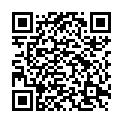|
|
|
| Module code: DFMM-MAMS-230 |
|
4V (4 hours per week) |
|
6 |
| Semester: 1 |
| Mandatory course: no |
Language of instruction:
German |
Assessment:
Written exam (120 minutes / can be repeated semesterly)
[updated 20.11.2019]
|
DFMM-MAMS-230 Management Sciences, Master, ASPO 01.10.2019
, semester 1, optional course
MAMS-230 (P420-0027, P620-0130) Marketing Science, Master, ASPO 01.04.2016
, semester 2, mandatory course
|
60 class hours (= 45 clock hours) over a 15-week period.
The total student study time is 180 hours (equivalent to 6 ECTS credits).
There are therefore 135 hours available for class preparation and follow-up work and exam preparation.
|
Recommended prerequisites (modules):
None.
|
Recommended as prerequisite for:
|
Module coordinator:
Prof. Dr. Frank Hälsig |
Lecturer: Prof. Dr. Frank Hälsig
[updated 17.08.2020]
|
Learning outcomes:
After successfully completing this module, students will,
- be able to explain the significance and particularities of business-to-business marketing, service marketing and trade marketing.
- be able to adapt the design options in marketing for companies in various sectors.
- be able to analyze and evaluate marketing approaches for different business groups within the different sectors (business areas, service typologies).
- be able to explain market structures and particularities of purchasing and procurement behavior and illustrate them using specific company examples.
- Based on these examples, students will be able to make and justify implementation recommendations for management, market development and customer interaction.
Services marketing:
[updated 20.11.2019]
|
Module content:
- Measurement and management of service quality (GAP and SERVQUAL models)
- Strategic and instrumental features in service marketing
Trade marketing:
- Market structure and internationalization in trade
- Manufacturer-dealer relationships
- Functions of trading in particular against the background of transaction cost theory
- Options for designing instruments, in particular assortment policy,
Multi-Channel Retailing
Business-to-business marketing:
- Significance, delimitation and special features of business-to-business goods marketing
- Organizational procurement behavior
- Marketing approaches according to business field typologies in business-to-business marketing
[updated 20.11.2019]
|
Teaching methods/Media:
Lecture with exercises and case studies.
[updated 20.11.2019]
|
Recommended or required reading:
- Backhaus, K., Voeth, M.: Industriegütermarketing, latest edition, München.
- Bruhn, M., Meffert, H. (Hrsg.): Handbuch Dienstleistungsmanagement, (latest edition), Wiesbaden.
- Bruhn, M., Meffert, H. (latest edition): Dienstleistungsmarketing, Wiesbaden.
- Bruhn, M., Stauss, B. (Hrsg.): Dienstleistungsqualität: Konzepte, Methoden, Erfahrungen, (latest edition), Wiesbaden.
-
Kleinaltenkamp M., Plinke W.: Strategisches Business-to-Business-Marketing, latest edition, Berlin.
-
Parasuraman, A., Zeithaml, V.A., Berry, L.L. (1998): SERVQUAL: A Multiple-Item Scale for Measuring Consumer Perceptions of Service Quality, in: Journal of Retailing, 64 (1), 12-40.
-
Pförtsch, W., Schmid, M. (latest edition): B2B-Markenmangement: Konzepte _ Methoden _ Fallbeispiele, München.
- Zentes, J., Swoboda, B., Foscht, T. (latest edition): Handelsmanagement, Wiesbaden.
- Zentes, J. (Hrsg.): Handbuch Handel, (latest edition), Wiesbaden.
[updated 20.11.2019]
|

